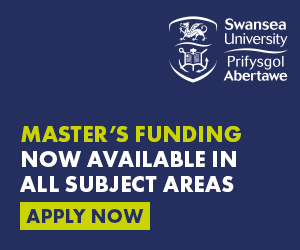Course Description
We equip you with key skills which will enable you to pursue careers in ecology, including:
- Geographic Information Systems (GIS) and remote sensing
- experimental and survey design
- wildlife surveying
- wildlife legislation and natural history
- Environmental Impact Assessment.
Graduates of this course have an excellent track record of gaining employment in the environmental sector. Within one year of graduation 18 of the 19 students from the 2011-12 cohort were employed, most in the environmental sector and the majority with ecological consultancy companies.
Examples of recent graduate destinations include students now working in ecological jobs for:
We provide a link to cutting-edge research that feeds into ecological consultancy, eg:
- research projects on black grouse and wind farms. Paper in review with the Journal of Applied Ecology
- noise and bird behaviour.
Quality and Ranking
We rank in the top 150 for Environmental Sciences – QS World University Rankings by Subject 2020.
Our staff
The Degree Programme Director, Professor John Bythell, is an active research ecologist. He has 27 years of experience of ecological consultancy work, particularly in Environmental Impact Assessment and International Development. His research focuses on wildlife diseases, mainly in tropical marine environments such as coral reefs.
Professor Mark Whittingham is a bird ecologist who contributes significantly to the degree programme. He has a wide network of contacts that can help you gain experience in this area. As a senior editor of the Journal of Applied Ecology he is aware of a wide range of ecological science and how this relates to ecological consultancy work.
Dr Phil McGowan provides international expertise for students wishing to pursue international projects and has extensive global contacts in the conservation sphere. He is heavily involved in work with the International Union for Conservation of Nature (IUCN).
Delivery
The course is taught and based on the Newcastle campus. It is delivered mostly in two week blocks but initially several modules run concurrently over a six week period.
The course consists of:
- 100 credits of taught work (October to March)
- 80 credit project (April to August)
Contact and independent study times vary depending on the module. We have a good range of practical elements in computer (eg GIS or statistics) and field classes (eg natural history skills or survey skills).
See Programme information in our online Prospectus for full information.
Entry Requirements
A 2:2 BSc or BEng honours degree, or international equivalent, in a related subject, such as: microbiology, agriculture, environmental, engineering biology, biological sciences, ecology, environmental science, zoology, marine biology, oceanography and geography. We will also consider applicants on an individual basis with lower or non-standard qualifications.
English Language Requirements
To study this course you need to meet our Band 2 English Language Requirements.
If you have lower English Language scores, you may be accepted onto a pre-sessional English course.
Fees
https://www.ncl.ac.uk/postgraduate/courses/degrees/ecological-consultancy-msc/?utm_source=referral-masters-compare&utm_medium=course-listing&utm_content=ecological-consultancy-msc&utm_campaign=PG3PL-masters-compare#fees&funding
Programme Funding
See Fees and Funding tab in the Programme information in our online Prospectus
Module Details
See Modules tab in the Programme information in our online Prospectus
Newcastle University Campus

Newcastle University is a world-leader in academic excellence and original research. Our reputation and popularity stems from the high-quality teachin...









